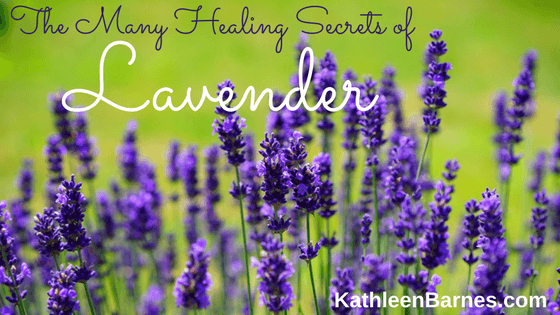If you could grow just one herb on your windowsill or in your garden, what would it be?
Lavender is hands down my personal choice. It offers the biggest health return for my investment of time, energy and real estate in my garden and the essential oil is inexpensive and even enhances the benefits.
So what can you get from a sniff? Scents have a powerful impact on your brain and can change your brain chemistry. Even before you become conscious of the smell, a scent has already affected several regions of your brain governing memory, emotions and a sense of relaxation and wellbeing. There’s substantial research that shows women react more strongly to aromatherapy than men do.
Studies show that various scents can alter sympathetic nervous system activity, lower the level of the stress hormone, cortisol and dramatically drop blood levels of the super stress hormone, adrenaline.
A whiff of lavender, the Natural Medicines Comprehensive Database (NMCB), herb or oil, says offers relief for:
- Stress: A Florida study showed that lavender oil reduced stress and lowered pulse rates among nursing students taking stressful exams.
- Anxiety: British researchers found thata whiff of lavender oil as all it took to relieve anxious patients in the dentist’s waiting room. Several small studies suggest lavender oil relieves agitation in people with dementia.
- Insomnia: A lavender filled sachet in your pillow or an essential oil diffuser might be just what it takes to help you get to sleep, according to British researchers who found through brain scans that the scent improved sleep quality by 20%.
- Nausea, vomiting, gas: Taken internally, lavender stimulates the production of gastric juices and helps food move more smoothly through the digestive tract.
- Depression: The scent of lavender stimulate the release of serotonin in your brain, bringing about a feeling of well-being and elevating mood, says my favorite herb expert, Susun Weed, who recommends it for combatting the winter blues.
- Migraine and other headaches: Some research suggests that rubbing 2 or 3 drops of lavender oil on the upper lip, so that the vapor is inhaled, might reduce migraine pain and nausea, and help stop the headache from spreading.
- Pain, toothache: Lavender’s relaxing effects help relieve pain, even the pain of labor. Research shows that a few drops of lavender oil significantly relieved postoperative pain in surgical patients. Rubbing on a little lavender oil helps reduce pain from sprains, in achy joints, in the lower back and, rubbed directly on an aching tooth, stops the pain in minutes.
- Infections: Topically applied lavender oil has antimicrobial properties and offers protection for minor cuts, burns, scrapes and bug bites. At least one study shows lavender oil is very effective in fighting anti-fungal resistant infections and another shows it helps kill a wide range of pathogens found on the skin.
- Acne and hair problems: It’s been used to treat acne and there’s even research to show it stimulates hair re-growth in balding men and control dandruff.
Be sure to use pure, therapeutic grade lavender oil. Undiluted oil can cause skin irritation for some people, so it’s best to dilute it with almond oil, jojoba oil or some other neutral carrier oil. Never take any lavender oil internally unless it is therapeutic grade and labeled so. NOTE: Some essential oils are poisonous when taken internally. DO NOT use essential oils internally unless you are absolutely sure they are safe. Check with an herbalist if you are unsure,
If you’re growing your own herb (essential oils are very difficult to make because they are distilled, so I don’t recommend it), fresh or dried flowers have the strongest scent.







